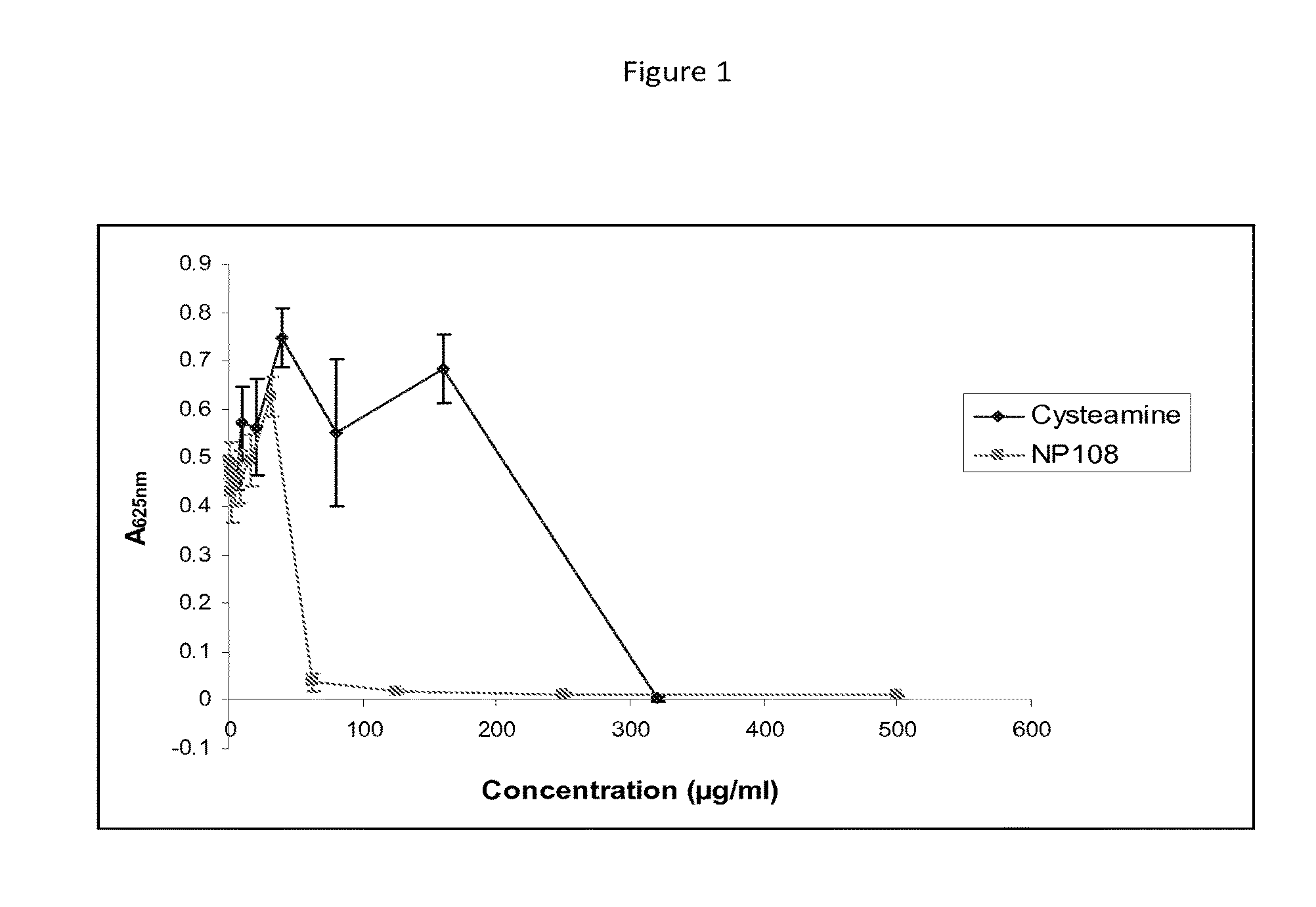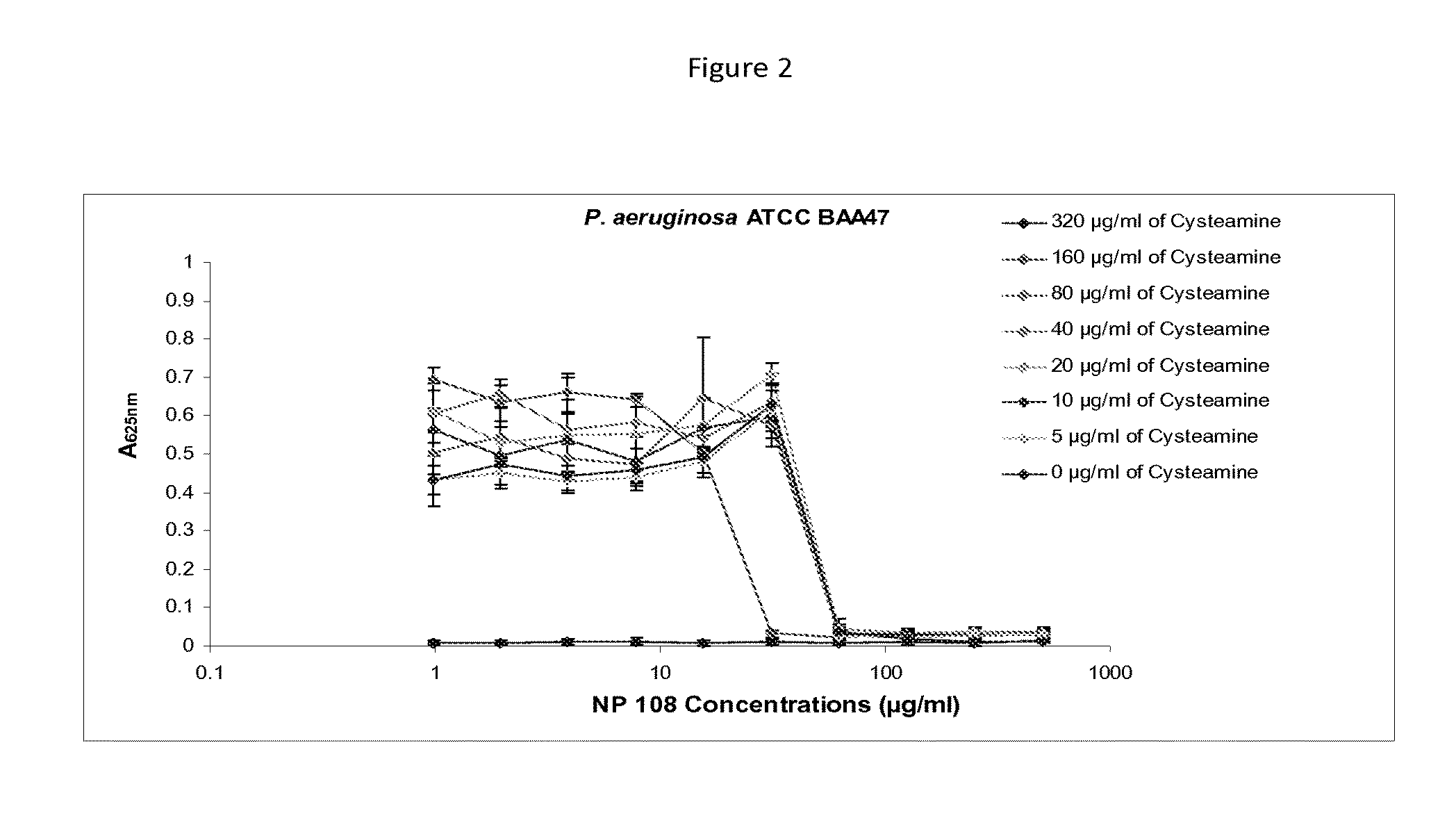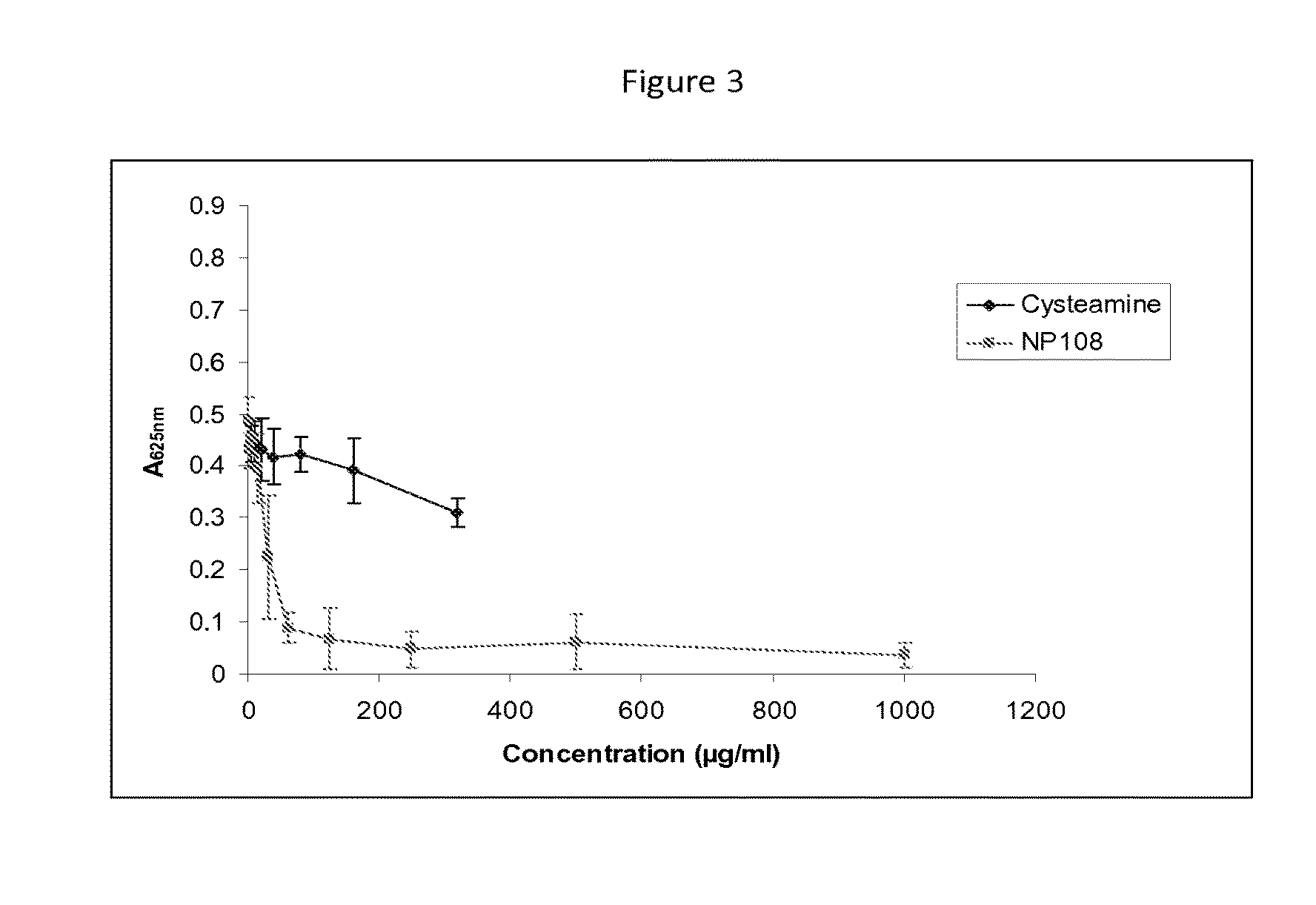Inhibition of Biofilm Organisms
a biofilm microorganism and biofilm technology, applied in the field of biofilm organism inhibition, can solve the problem of no standardized method for the study of the susceptibility of biofilm microorganisms to antibiotics
- Summary
- Abstract
- Description
- Claims
- Application Information
AI Technical Summary
Benefits of technology
Problems solved by technology
Method used
Image
Examples
examples
Activity of Antimicrobial Agents Against Bacterial Biofilms
1. Materials and Methods
1.1 Bacterial Strains
[0160]Pseudomonas aeruginosa ATCC27853, P. aeruginosa BAA-47 (PAO1), P. aeruginosa DSM1128, P. aeruginosa DSM1299 and S. epidermidis ATCC35984, S. epidermidis ATCC 12228 Staphylococcus aureus 25923 and methicillin-resistant Staphylococcus aureus DSM 11729 (MRSA) (DSMZ, Braunschweig, Germany) were used in this study. Four P. aeruginosa clinical isolates (NH57388A-D, Hoffmann et al., 2005, 2007) were obtained and used for antimicrobial susceptibility testing.
1.2 Preparation of Antimicrobial Compounds
[0161]The antimicrobial agents tested in this study were the cationic peptide NP108, which corresponds to a 10-20 kDa poly-L-lysine, hydrobromide and cysteamine (NM001). Both agents were obtained from Sigma-Aldrich (Gillingham, UK) and stock solutions were prepared at 20 mg / ml in 14-18 MΩ·cm pure water (Purite HP40 water purification system, Oxon, UK). Once dissolved, the preparations we...
PUM
 Login to View More
Login to View More Abstract
Description
Claims
Application Information
 Login to View More
Login to View More - R&D
- Intellectual Property
- Life Sciences
- Materials
- Tech Scout
- Unparalleled Data Quality
- Higher Quality Content
- 60% Fewer Hallucinations
Browse by: Latest US Patents, China's latest patents, Technical Efficacy Thesaurus, Application Domain, Technology Topic, Popular Technical Reports.
© 2025 PatSnap. All rights reserved.Legal|Privacy policy|Modern Slavery Act Transparency Statement|Sitemap|About US| Contact US: help@patsnap.com



